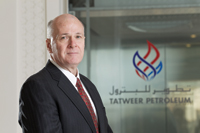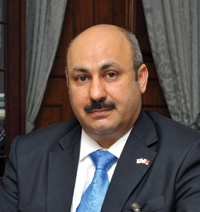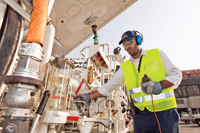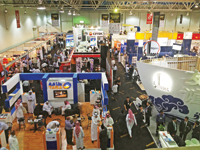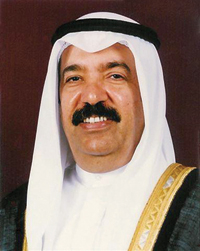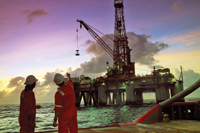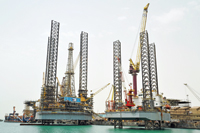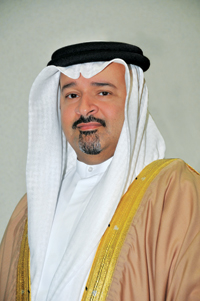
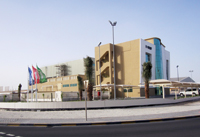 The BASF CSB facility in Bahrain
The BASF CSB facility in Bahrain
BAHRAIN is investing in the production of plastics polymers to cater to the annual plastics consumption growth in the Gulf.
A large number of Bahraini investors, including banks, manufacturers and funding companies, are investing into the rapidly growing GCC polymers industry.
At a recent press conference organised in Manama by Messe Düsseldorf Germany and Al Fajer Information and Services, organisers of Arabplast, the Middle East’s trade show for rubber, plastics and petrochemicals, speakers emphasised the leading role played by Bahrain’s petrochemicals industry which channels its output to more than 150 countries worldwide.
Speakers also appreciated investments made by Bahraini business community into the “neighbouring” polymers industry which is similar to the country’s tremendous efforts that led to the financial boom in early nineties, and helped positioning the kingdom as the financial hub of the Gulf region as far as offshore banking and Islamic financial services are concerned.
The investments in plastics industry nowadays could reap similar results, says Satish Khanna, general manager, Al Fajer Information and Services.
Khanna notes: “Bahrain is increasing its share of the production of petrochemicals which is becoming a key driver of the kingdom’s economy and which enhances its economy diversification drive.
“Even though just 20 per cent of the GCC petrochemical products are plastics, they account for 70 per cent in terms of value. It had become a well-known fact that the region will emerge as the second highest per-capita consumer of plastics in the world by 2020.
“As organisers of the biggest plastics trade fair for Mena region, we urge GCC governments to encourage the public and private sectors to increase the production of plastics polymers. We need to be ready from now for the rapidly increasing per capita consumer figures in the GCC.”
The petrochemical industry is the backbone of industrial development in Bahrain and plays pivotal role in the kingdom’s economy. The industry has contributed to creating new downstream industries in Bahrain such as chemicals, detergents, paint, medical and industrial gases, plastics, synthetic sponges, glass and heat insulators.
All these form a major part of an industrial sector that is attracting private sector investors due to lower investment and high profitability.
Gulf Petrochemicals and Chemicals Association says in a report that annual plastics consumption in the GCC would grow 22 per cent from 3.3 million metric tonnes (mt) in 2011 to 5.5 million mt in 2015. There have even been talks of incentives for companies or individuals investing in the country’s downstream sector. Greater incentives will be provided towards developing the downstream sector,” says acting assistant under-secretary for industrial development Kareem Ahmed Al Rashid, Bahrain.
“We’re trying to promote industrial land, which can be bought without duty. There is no corporate tax in Bahrain, which makes the investment environment very attractive to foreign investors,” he added.
“An industrial map will be chartered to identify any missing opportunities and the focus will be on GCC projects targeting SMEs,” he says.
The country is also earmarking investments into expansion and modernisation of its refining facilities. Bahrain is to spend between $6 billion and $8 billion on modernising its refinery within the next six to seven years. The country’s only refinery, Sitra, is located south of Manama and has a current capacity of 248,900 bpd.
Bahrain exports most of the Sitra refinery’s products to India and the Far East. The Sitra refinery was built in 1936, and has been modernised several times.
Former Energy Minister Dr Abdul-Hussain bin Ali Mirza says the modernisation would mean several key components of the refinery will be replaced and new ones set up to ensure the refinery remained good for the next 70 years.
“The Bapco refinery is more than 70 years old already and has been giving us tremendous service all these years. We have to ensure it stays that way for our future generations,” he says.
The upgrade of the refinery will increase its capacity from 260,000 barrels per day to 450,000 barrels per day. A bulk of opportunities in the oil and gas industry lie in the expansion of petrochemical facilities into the profitable downstream business, believes Dr Mirza.
Bahrain is also in the final stages of replacing the ageing pipeline carrying crude from Saudi Arabia and has established a route as it awaits approvals. This is part of its vision to create a refinery that is a world leader and extremely competitive. The refinery expansion is due to be completed by 2019 and that the new grades of crude from Awali fields can be processed at this facility.
“With its enhanced capabilities, the refinery master-plan will open new opportunities for the addition of downstream value creation through the addition of petrochemical plants. We’re evaluating this at the moment with assistance from a consultancy firm and the results look promising,” Mirza adds.
Further, on the petrochemicals front, Gulf Petrochemicals Industries Company (GPIC) has completed a feasibility study for a mega ammonia-urea plant as part of its 2020 strategic expansion plan at a cost of around $1.5 billion. Work on the new plant is expected to take off soon.
National Oil and Gas Authority (Noga) has entered into a joint venture with Norwegian IM Skaugen to form a petrochemical shipping company Skaugen Gulf specialising in olefin, gas and LPG marine transportation to serve the GCC petrochemical industry. Another joint initiative of Noga along with Bapco and Finnish operator Nestle Oil has resulted in the birth of Bahrain Lube Base Oil Company, which will produce up to 400,000 metric tonnes per year (mtpy) of high quality lubricating base oils. While there are many projects in the pipeline in the downstream sector, the main constraint lies in the availability of land.
“We’re ready to move to the downstream projects, but we need more land for all our plans. That has become a major concern,” the minister was quoted as saying.
Apart from land, like many of the other GCC countries, Bahrain is also battling gas shortage. Alongside the expansion of its economy, the kingdom’s demand for gas has risen consistently by 3.5 per cent annually over the past decade. On an average, Bahrain consumes around 1.45 billion standard cubic feet (bscf) of gas daily, but during the peak demand periods, this figure soars about 35 per cent higher, primarily to fulfil requirements such as power generation.
The gas demand is estimated to continue to rise over 3 per cent annually over the next ten years as industrial users such as Alba, Bapco and GPIC ramp up their operations. Besides its agreement with Russia’s Gazprom for supply of natural gas, the Kingdom is exploring other sources of supply. One of these involves building an LNG terminal to receive imported gas and a pipeline network to supply end users, an arrangement the kingdom is very keen on.
Meanwhile, BASF opened a state-of-the-art production site for customer specific antioxidant blends (CSB) in Bahrain. This is the largest facility of this kind worldwide. CSB are additives-blends individually tailored to meet individual customer needs and are an integral part of the portfolio BASF offers to the plastics industry, says a company release.
“BASF’s investment in this new site demonstrates our steadfast commitment to support growing industries in the Middle East, while at the same time setting standards with regard to quality, safety and employee training,” says Michael Heinz, member of the board of executive directors of BASF, during the opening ceremony.
Kamal bin Ahmed, Minister of Transportation and acting chief executive of the Bahrain Economic Development Board, says: “We are delighted to welcome BASF, a leading international company, to Bahrain.
Large manufacturing firms like BASF are playing an increasingly important role in our economy and will be a significant part of our plan to create sustainable long term economic growth and high quality jobs.”
The new facility is part of a strong antioxidants production network comprising Asia, Europe and the Americas, which will be further optimised once the new capacity comes on stream. The new facility, which is based on proprietary CSB technology, will provide local production and services to the fast growing polymer market in the Middle East with special focus on key customers in the countries of the GCC. It comes in addition to the existing manufacturing agreement for CSB with Astra Polymer in the Kingdom of Saudi Arabia, which has been extended earlier this year, adds the statement.



































































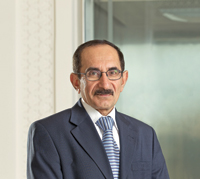
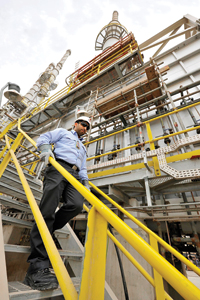
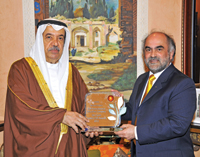

.jpg)
.jpg)
